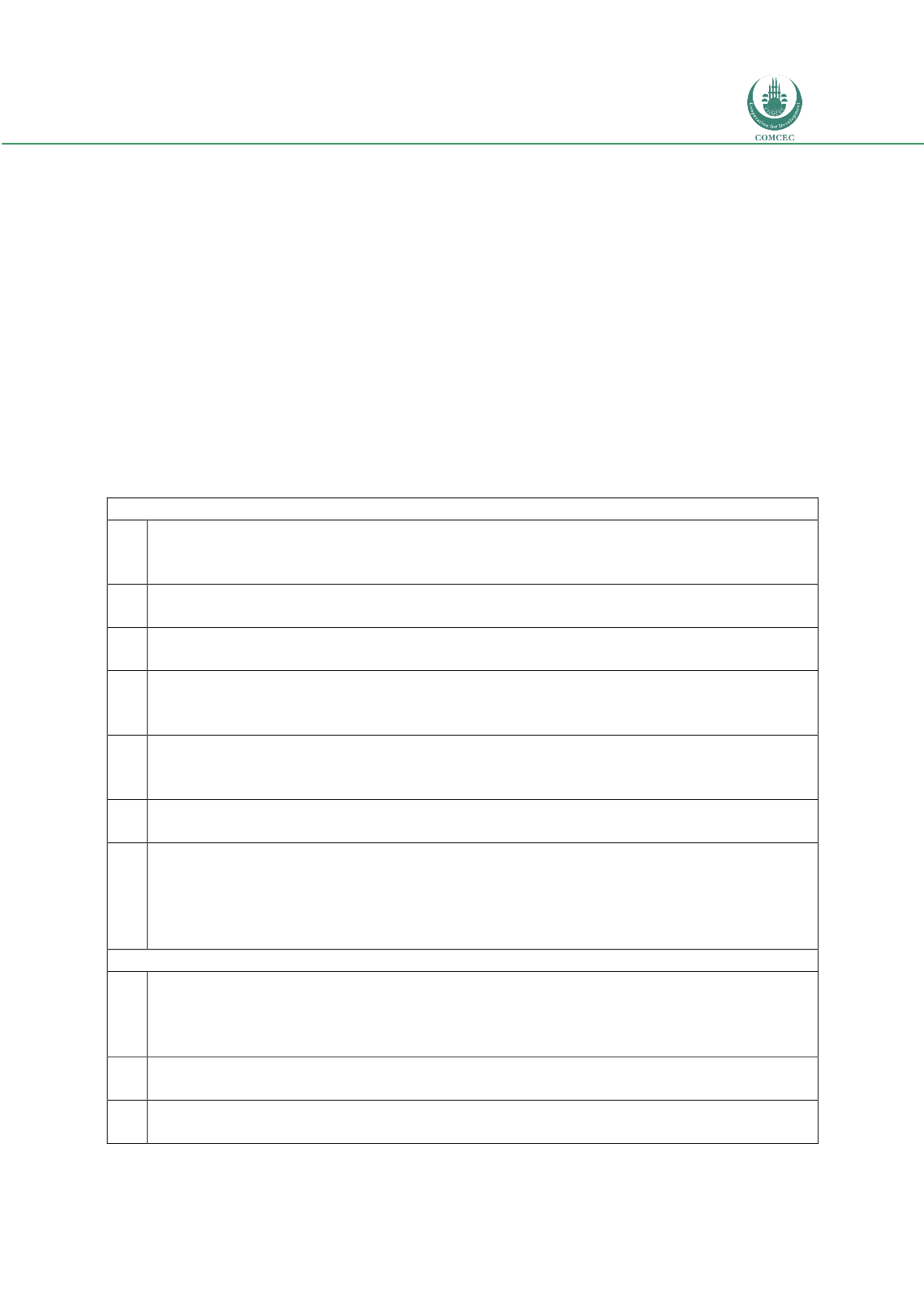

Risk Management in
Islamic Financial Instruments
135
mid-term review of the
Ten-Year Framework
was conducted in 2013. The mid-term review
analyzed the impact of recent events on the IFSI. The mid-term review also examined the
progress made on the recommended initiatives, examined gaps in implementation, and
analyzed other issues with the listed priorities and initiatives in the
Ten-Year Framework
.
Through the mid-term review, it was determined that the IFSI has shown great resilience in
the face of recent tribulations in the global financial industry, especially in comparison to the
conventional financial industry. However, the IFSI has not been entirely immune to the recent
global financial crisis. While economies around the world have weakened, including countries
using Islamic finance, the financial crisis has impacted the IFSI’s asset values, investments, and
approach to financial regulation. The resilience of the IFSI has served as an indicator to
Western countries of the pertinence and potential of Islamic Finance (
A Mid-Term Review
2-5).
Table 6.3 lists the
Ten- Year Framework’s
13 original recommendations and three new
additions from the mid-term review. The
Mid-Term Review
categorized the recommendations
into three categories: enablement, performance, and reach (
A Mid-Term Review
6).
Table 6.2: Ten-Year Framework Recommendations
Enablement
1
Facilitate and encourage the operation of free, fair and transparent markets in the
Islamic financial services sector
5
Develop the required pool of specialized, competent and high-caliber human capital
6
Promote the development of standardized products through research and innovation
8
Develop an appropriate legal, regulatory and supervisory framework, as well as an IT infrastructure that
would effectively cater for the special characteristics of the IFSI and ensure tax neutrality
9
Develop comprehensive and sophisticated interbank, capital and hedging market
infrastructures for the IFSI
12
Foster collaboration among countries that offer Islamic financial services
14* Develop an understanding of the linkages and dependencies between different
components of Islamic financial services to enable more informed strategic planning to be undertaken
Performance
2
Enhance the capitalization and efficiency of institutions offering Islamic financial services (IIFS) to
ensure that they are adequately capitalized, well-performing and resilient, and on par with international
standards and best practices
4
Enhance Sharī`ah compliance, effectiveness of corporate governance and transparency
7
Enhance the implementation of the international prudential, accounting and auditing standards
applicable to the IFSI

















